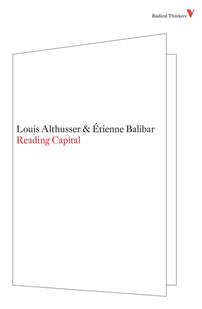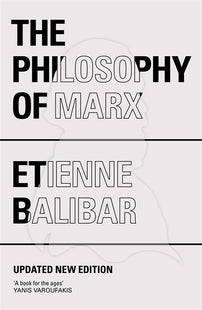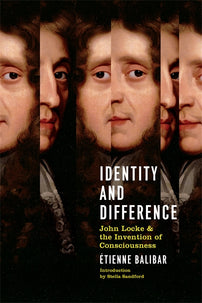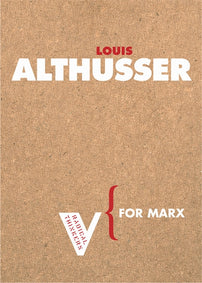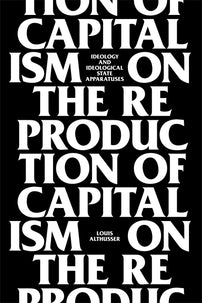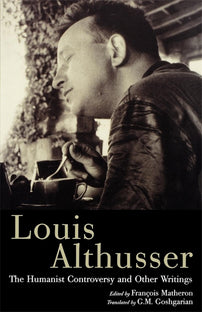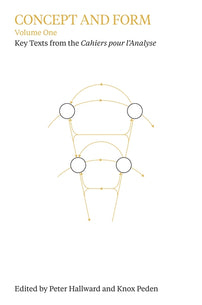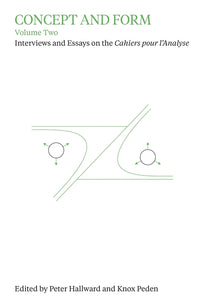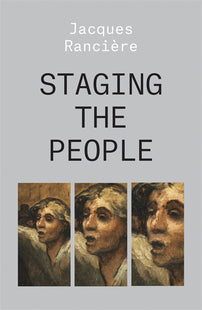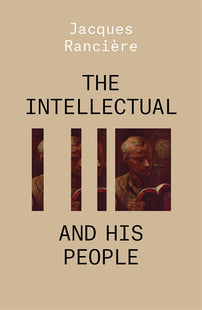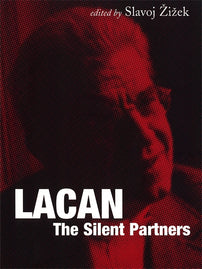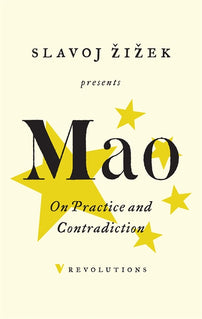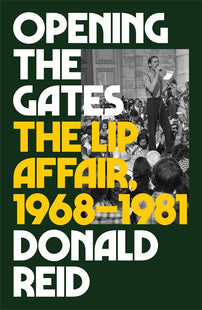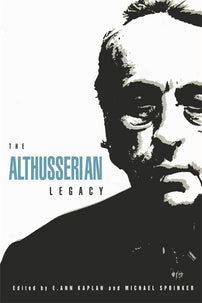The Critique of the School in Post-’68 French Thought (1): Interview with Étienne Balibar
In the aftermath of May 68, the question of the school was omnipresent in French philosophy. In this interview Etienne Balibar discusses the different critiques of the school in post-68 French thought and the challenges involved in developing a Marxist theory of the 'school apparatus'.
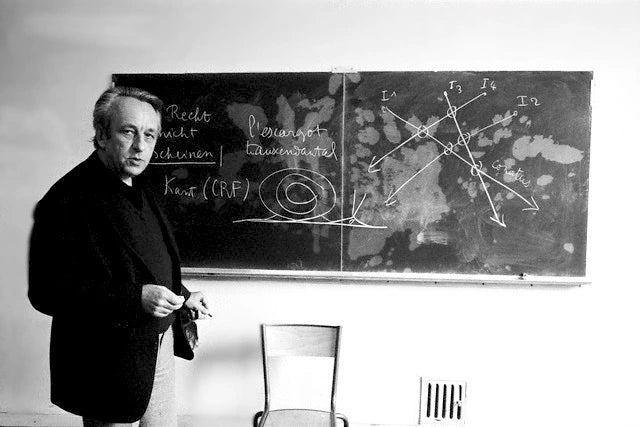
This is an interview with Étienne Balibar by Jun Fujita Hirose and Yoshiyuki Sato, on the ‘critique of the school in post-’68 French thought’. Shortly after May ’68, Balibar founded a research group on the school along with other Althusserians (Christian Baudelot, Roger Establet, Pierre Macherey, and Michel Tort). In this interview, he recounts in detail the history of this collective work as well as the issues involved in the critique of the school in post-68 French thought.
Our project concerns the question of the figure of the school in post-’68 French thought, that is to say for two generations, Althusser’s generation and your own. We believe that the figure of the school was always very present in almost all French philosophers of that period. This is a specificity of post-’68 French thought, because, for example, if we compare it with Italy in the 1960s and 70s, there you certainly had a great movement of thought with the proletarian social movement and so on, but the problem of the school was almost completely absent: they were more interested in the factory. This leads us to interrogate the centrality of the figure of the school in post-’68 French thought. For Althusser, the school was the dominant state ideological apparatus. Whereas for Foucault, his official answer to the question ‘What is the disciplinary apparatus?’ was the prison. But if you read Discipline and Punish carefully, you understand that the question of the school is also important. Here, we suddenly recognise a kind of quarrel between Althusser and Foucault over the conception of the school. In a word, for Althusser, the school is located in the superstructure, whereas, for Foucault, it is in the base, as the apparatus that shapes bodily singularity by immediately adapting it to the production machine. And when we think of Rancière, how did he make his appearance on the Parisian intellectual scene? It was by criticising Althusser, his former master. He was also interested in the figure of the ‘ignorant schoolmaster’. Between the two generations, that is, Althusser’s generation and Rancière’s, the second generation made itself known, in a way, around this figure of the school. To broaden our field a bit, let’s think about the figure of the school in Lacan. What was the school for Lacan? Of course, this was not at all just a current of thought. It was also, among other things, a kind of educational machine for psychoanalysts. When psychoanalysis was made into an official school by founding the experimental university at Vincennes, Lacan was very much against it, and looked for another form of school for psychoanalysis: the ‘pass’ system. So, again, here, it was a school question. What happened, ten years later, around the foundation of the Collège International de Philosophie? Here again, Derrida was very interested in the question of the school. And alongside Derrida, there was also someone like Guattari and his comrades who were interested in the question of the school. That’s why the figure of the school interests us as something central, the pivot, point of contention or point of heresy, among French philosophers across generations.
‘Contention’ is better. For Foucault, there were several kinds of ‘points’. And your ‘point of contention’ seems to me very good. In his lecture course on The Birth of Biopolitics, which is now very famous, and is at the same time a course on neoliberalism, much discussed because of that, there is what he calls the ‘point of adversity’. So clearly, as is often the case, this kind of formula implicitly plays on several meanings of the word – likewise with heresy. Adversity in French means, at the very least, misfortune. It’s the difficult or unfortunate circumstances in which one can find oneself exposed to danger, but on the other hand, etymology suggests that it’s where one meets an adversary, or adversaries meet, and therefore it’s a little bit closer to what you call the point of contention. But point of contention is fine. The point of contention and the object of contention.
Do you have any comments on this project?
On the general project? Yes, I will make some comments for you, but if I get started I won’t stop. Anyway… Before I do that, what do you want to ask me about in particular? Very general questions, mainly about the subject, or are there any specific issues you want to discuss? In our correspondence, you alluded to the fact that I had participated in the late 1960s and early 70s in a project that never fully came to fruition, to write an ‘Althusserian’ book on the question of the school. So, would you like to ask me about this? I completely agree, I couldn’t ask for more. But do you want us to devote the main part of the discussion to this point, or is it just one point among many others?
It’s a main point.
Okay. So, we’ll come to that, but I’ll start with the general questions. One last technical question to enlighten me, how did you hear about this work project? What led you to it?
For example, in the introduction to Althusser’s On the Reproduction of Capitalism.
So it’s the introduction to the book on reproduction. I had pointed out to Bidet in my preface that it was a mistake to have reproduced, once again, Althusser’s famous article on ‘Ideological State Apparatuses’ from which the formulae you mentioned are drawn, and which we now know is a reworked extract from the manuscript of On the Reproduction of Capitalism. It was a mistake to remove the ellipses marking the places where Althusser made cuts or, more exactly, jumped from one development to another that was not in the same place in the original manuscript. Because this article was composed of several extracts from the manuscript on reproduction, which he cut and pasted together and then rewrote a bit. For the most part, the two parts of the article that are directly relevant to our subject, the one which deals with the reproduction of capitalist relations of production (there has to be a reproduction of labour-power, there has to be a reproduction of the means of reproduction, etc.), and then the other part, in which he inserted the development on the interpellation of individuals as subjects, which has become so famous, and the eternal mechanism of ideology in general, which, moreover, takes up things he had been ruminating on for a very long time, come from two quite different places in the complete manuscript. So, he brought the two together. When he published the article, he put ellipses in the middle. It’s a way of suggesting that there’s something missing. It’s a juxtaposition or a collage. Obviously, this collage does not prevent a reading. In fact, in my opinion, it had rather positive effects. Because the people who read the article said to themselves that something was missing. What could it be? So, they tried to invent it or guess it, or fill in the gap. If, on the other hand, they had had the whole text, they would not have understood that something was missing. This raises the question of whether in Althusser’s head the two ideas were perfectly articulated with each other. I think not. The publication in the form of an article with this central lacuna had the happy effect of revealing the existence of a problem, instead of hiding it under an apparent continuity. All the more so, since the whole book, like much of what Althusser wrote at the time, was intended to be pedagogical: far from trying to convince the reader that there is a residual difficulty, it tries, on the contrary, to convince them that the difficulties are resolved. Because I studied classical philosophy, I have concrete examples of this in mind, which serve as a point of comparison. The example I think about all the time is Descartes’ Treatise on Man. Because Descartes had written a treatise which he did not publish himself, which was published after his death by his disciples. And when the disciples published Descartes’ Treatise on Man, there were two chapters missing in the middle. So, they said that these chapters could not be found, but that they existed. I am convinced that these chapters never existed, because the first part of Descartes’ Treatise on Man is the anatomy of the human body. It’s physiology, the body. And the latter part is passion, the psychic phenomenon. So, what’s missing between the two is precisely what Descartes searched for all his life, and never found, i.e. the ‘pineal gland’, everything that Spinoza reproaches him for having searched for when in fact it doesn’t exist. I think that Althusser’s article has exactly the same kind of gap. Because the beginning is reproduction, that is to say the social or socio-economic phenomenon which comes from Marx’s theory in Capital and is an extension of it, and then the end is the articulation of ideology with the unconscious which Althusser has been looking for all his life, so it’s the psyche. Between the two, there should be a pineal gland! But it doesn’t exist, it can’t exist. So, when I was asked if I wanted to add something to the republication of the article, I said: ‘Yes, and don’t forget to correct your enormous editorial error and restore the ellipsis.’ But, of course, they didn’t! Because Bidet believes that the theory exists. That’s the big difference between us. I don’t think it exists. I think we’re looking for it.
Why are we talking about this? Oh yes, I was wondering where you got the idea that there’s an unfinished manuscript on the school. I’ve mentioned it in a couple of different places. Pierre Macherey too, perhaps. I’ve talked about it in particular in interviews I’ve done on Althusser over the last few years, and I didn’t want to repeat... There was one in particular that I did with Yves Duroux. It was for a group of young Italian and Belgian Marxists, who had come to question the two of us together on the genesis of the school project. So we’ll talk about this project later on.
We’ll come back to your general introduction, but I’ll finish the technical stuff. Well, what happened was that, in the aftermath of the events of 1968, in the midst of the general agitation of that period, the question of the school was obviously discussed on all sides, as well as that of the university. Partly for reasons that you have grasped very well, which have to do with the centrality or even the obsession of French thought with the school problem. And, partly because the events of ’68 took place in these two places: in the factory and in the school. In the factory, the people who could talk about it were trade unionists, militants, workers – but there weren’t any of these talking about it at the time. And then at the school it was academics, students and, by extension, high-school students and teachers. In the midst of this effervescence, this agitation, a small group had formed, which was a group of students and friends of Althusser – but without Althusser. A very important point, because he was ill as he often was and he wasn’t there. He was in hospital in a depressive phase. So, this little group had formed independently of him.
[book-strip index="1" style="display"]Who was in this group?
It was Pierre Macherey, myself, Christian Baudelot and Roger Establet, two sociologists – Roger Establet was a philosopher originally, a contributor to Reading Capital, whom Pierre Macherey and I had known very, very well all our lives. Christian Baudelot was my fellow student at the École Normale Supérieure, a literary scholar, but he became a sociologist. He was not, at first, a member of the Althusserian group, but we knew each other very well, and above all he had formed a team with Roger Establet. So, they worked together. And then the fifth was the psychoanalyst Michel Tort, who was also originally a philosopher and participant in Althusser’s seminars. Some of us, but not all, were part of the philosophical research group that Althusser had formed around him immediately after the publication of Reading Capital to try to write a textbook of Marxist philosophy.
Let’s leave all that aside. We formed a group immediately after ’68. A working group. And we set ourselves an objective which seemed urgent to all five of us, but which also required a little distance, a little preparatory work. And this objective was indeed to draw up a theory of the school system, of the school apparatus, a Marxist theory if you like. So, you shouldn’t rush to interpret this in the terms set out by Althusser in his text on reproduction, because, from the historical point of view, things happened in precisely the opposite direction. We were the ones who started working on this.
So, we made ourselves a little toolkit of Marxist, post-Marxist or hyper-Marxist concepts, which was our collective invention. There were historical aspects. With Macherey, I worked on the history of pedagogical theories in the wake of what we had done in Reading Capital. As Althusser would do later, I was trying to graft onto the theory of the capitalist relation of production in Capital a theory of the reproductive function – I think the idea of reproduction was already there – of education by the school. But the division of labour was not ‘to each his own’; there was a general discussion as well as more specific interests. As sociologists, Baudelot and Establet had maintained very close relations with someone whose absence from your initial summary struck me, and who we absolutely must talk about, i.e. Bourdieu. More exactly Bourdieu and Passeron, because in their common work, Passeron, who is less known than Bourdieu today, counts as much as Bourdieu. They proposed to deepen and radicalise the critical sociological analyses of the French school system in a more militant and more Marxist sense. Bourdieu and Passeron were not known as Marxists at all. They were interested in the sociology of the school in France (not just the university): the social origin of pupils, which played, and continues to play, an enormous role in the functioning of the French school system, the orientation of pupils in different branches of study according to their social origins. And then Michel Tort, who was a psychoanalyst, very closely linked to Foucault personally, a great reader of Canguilhem. His relationship with the Lacanians quickly became very conflictual, but Tort’s trajectory from this point of view is very interesting. When we held the seminar on Lacan around Althusser at the École Normale Supérieure in 1963, Tort, who was already working on Freud at the time, gave a great talk on Lacan’s conception of Freud which was very favourable to him – because we were all favourable, anyway. Above all, he published some time later a rather Lacanian article against Ricoeur, the well-known French philosopher, author of a book on the interpretation of Freud which the Lacanians immediately considered scandalous. The Lacanians were very upset with Ricoeur, and Tort had always been vehemently anti-clerical, while Ricoeur was always suspected of being a bit too Christian. Ricoeur was a convinced Protestant whereas Lacan had a clear Catholic heritage. And, so, Tort wrote a very long article over two issues, full of terrible violence and malice against Ricoeur from a Lacanian point of view. Today Tort has become violently anti-Lacanian, because he is convinced that Lacan was a particularly spectacular and shameful representative of sexism or masculinism within psychoanalysis. He has written a book called Fin du dogme paternel, which is against Lacan. So, at the time when Tort was in a close relationship with Lacan, he was certainly very interested in the question of psychology, pedagogy and psycho-pedagogy, and this still plays a very important role in the functioning of the school system. He played a very important role in our group.
So, you could say, to simplify a lot, that there was a common project. It was very ambitious in theory. During the events of ’68, Pierre Macherey and I had already published a small text on the question of the school which we circulated. We had formed a big project in which, basically, I was in charge of creating a theory of the school form. It wasn’t so much the ‘apparatus’ that interested us, it was the ‘form’, just as Marx had a theory of the ‘wage form’ and the ‘commodity form’, which we thought we could arrive at. Later, there was Negri’s ‘state form’. I focused on the school form, which was connected with discipline in Foucault’s sense, but we’ll talk about that later. Pierre Macherey also focused on the school form, but, in particular, on the history of pedagogical doctrines in the French philosophical and sociological tradition. Baudelot and Establet dealt with the social composition of the school system and its function in reproducing the social hierarchy. And then Michel Tort dealt with the question of intelligence. I’m very amused because all this is coming back to the fore today for other reasons.
We worked on all that. We had formed a plan. Each of us had started to write. Some parts were further along than others, and some parts were behind. The plan was completely disrupted – I’ll have to find the exact date, I’m going to simplify and it’s going to sound a bit of a caricature – by the fact that Althusser came out of his clinic. He asked us: ‘What are you doing?’ Depression is terrible. When people spend months in a sleep cure, and then have to return to life, they have to find the taste for work and put their objects of reflection back in place. With Althusser, like other people but even more so, there were always two elements that played decisive roles. On the one hand, he could not work if he was not in a state of intellectual excitement. Hence the allure of his work and the posthumous results. It got worse later on. But, basically, either Althusser was depressed and couldn’t work, or he could work, but was overexcited. This had both beneficial and harmful consequences. The beneficial consequence was that he had an astonishing work capacity. He understood very quickly everything he heard, read or listened to. He later explained in his self-critical and punitive texts that he had not read anything etc., but this is, of course, quite wrong. And that was compensated for by something else, which is that he had a quite extraordinary capacity to listen to what people were saying, to get people to talk. Instead of reading an article or a book, he would meet the author who had only one desire, to tell Althusser what he was doing, and, in this way, he would store up extraordinary things. And then he would sit down in front of his typewriter and write, typing non-stop for four or five days and nights without sleeping, and that would result in a manuscript that was almost already a book. Except that it stopped in the middle because he’d hit a snag and didn’t know what to do. On the other hand, he also needed to work like everyone else, but perhaps even more than others, because he thought of everything he did in terms of intervention. He needed to imagine the political landscape in which what he was writing would intervene.
So, he came out of his prison, his hospital – this would lead us to Foucault – and he heard everything that was being said after ’68, he met those of his former students who had ‘established’ themselves in factory work, and then the project of a philosophical and political intervention began to germinate in his head. That was the point when we explained to him what we were doing. There were texts, provisional manuscripts. And then he told us that it was great, that we were absolutely right, that it was the central problem, that he was going to try to make some remarks and suggestions himself. So that’s where things went wrong. The five of us went to the seaside in Brittany to move the project forward. Some of us were in more of a hurry than others – we all thought that we should take the time to study but also to make a plan and finish it: we had divided up the chapters and we had to write them. Then this mimeographed text by Althusser arrived, and Althusser sent it to us, saying: ‘I know that you’re working on the school and I’ve thought about everything you’ve told me and I’m proposing something to you.’ Then came the theory of the ideological state apparatuses, of reproduction, so on the one hand, it was a bit of the same terminology because he had listened to what we had told him; on the other hand, he had introduced his own systematisation. At that point, the group broke up. There was a very violent conflict between us, because Pierre Macherey and I said: ‘Oh yes, Althusser has rethought the whole question, we have to start all over again, we have to re-translate what we have done into the language of ideological state apparatuses, and find a synthesis of the two.’ And Baudelot and Establet were absolutely furious. The fact that they were more Maoist than Pierre Macherey and myself also played a role in this. There were tensions between Althusser and the Maoists, and then there was also the fact that this philosophical refoundation of the project seemed to them to be much less important than the empirical analysis and, above all, the political consequences to be drawn from it all. And Tort sided with them. This led to the interruption, the failure of the initial project. As a result, the texts that Pierre Macherey and I had already written, or the notes we had written, partly working notes, partly draft chapters, remained as they were. And then, for their part, Baudelot and Establet hived off the part they were working on. They incorporated some of the ideas that we had in common, that was their absolute right. And they made a book out of it, which was published some time later and is called L’École capitaliste en France, which I would summarise by saying rather brutally that it is a sociology of the school in the sense of Bourdieu and Passeron, but with a Marxist and gauchiste twist. It also had a preface on the Cultural Revolution as a solution to the problems of the division of manual and intellectual labour, which was one of the questions that mattered most to us. As for Tort, he also published a book, which many people have perhaps forgotten today, but which I found and continue to find very interesting, which is called Le Quotient intellectuel, IQ, which is the fundamental instrument of psychology and psycho-pedagogy invented by positivism in the nineteenth and twentieth centuries.
So, the result of all this is that Pierre Macherey and my drafts remained. I don’t know where Macherey’s manuscripts are, I think Warren Montag must have them, because one day Pierre Macherey gave them to him, half to get rid of them, half to please Warren Montag for whom he always had great friendship and esteem. He gave him everything. As far as I’m concerned, I gave everything I had to the IMEC to be part of the Fonds Althusser. So, my chapters and my drafts are at the IMEC. If you like, then, I’ll come back to what you were saying earlier.
[book-strip index="2" style="display"]Yes. For example, was your mother, Renée Balibar, also involved in the project?
No, she was not part of the project. She was very interested in the school problem for her own reasons, which perhaps fit into the panorama of French thought that you are seeking to construct. My mother was a literature teacher. She went from lycée to university teaching after 1968. After or before – a little before, perhaps. And she had formed a working group with her own students, which led to the publication of two works in Althusser’s Hachette collection, on French literature and the school in general, and on the institution of the French national language. My mother was not at all particularly Marxist. But there was something that may have predisposed her in that direction under the influence of circumstances, which was that she was from a working-class family in the centre of France and a war orphan.
So, my mother was never a ‘full professor’ in the university sense because she never did her thesis – she had four children. But she was particularly interested, for biographical and sociological reasons, in the influence of the French school on the training of intellectuals. In addition, the people she admired, whom she later wrote about with her students, were all writers. They played a very important role in France – I don’t know about Japan – and they were cases of the same kind. The two writers she worked on most were Charles Péguy and Albert Camus. Both of them were examples of lower-class children, children of the people, and also fatherless. And they had become writers through the influence of schoolmasters. Camus wrote an unfinished novel that some consider the best of his work, called The First Man, which was published after his death. In it, he tells the story of the influence his schoolmaster had on him as a child. The figure of the schoolmaster is central to all this. My mother was very much into this mythology or ideology.
Then came ’68, and the fact that I was Althusser’s student, and she got to know him. So, they sympathised with each other and found a common interest, particularly because Althusser had a Catholic past and my mother was very typically a left-wing Catholic, like Péguy though not like Camus. All this led to her starting to move towards Marxism in the years immediately after ’68. But a rather particular Marxism because she had to read a bit of Marx and Lenin, yet she hadn’t immersed herself in Capital like we had. I think her Marxism was Althusser rather than Marx. During this period, she conducted both personal and collective work with her students. That was the spirit of the times, because professors who worked collectively with their students and treated them as equals were very rare in the university. And, so, it was a combined effect of ’68 and Althusser’s Marxism.
So, she worked on the relationship between literature and the school, which was not the central aspect of our work, but which nevertheless had a certain number of points of overlap, especially because Macherey was very interested in literature. He had talked a lot with my mother and found similarities with her. But then he went off somewhere else, which is normal.
And after the arrival of Althusser’s manuscripts at your house by the sea, were there still some meetings between you?
Perhaps. But in my memory, perhaps I’m simplifying things – there’s nothing shameful in that, that’s life, isn’t it? And it’s also a bit of a backlash from politics. You have to remember what happened in French politics at that time, we were all torn in different directions.
I’ve forgotten the details. But the polemics in which we were caught up, with the Communist Party on one side, the Maoists on the other, the fact that we all had one foot in the Communist Party and another in the Maoist group, and some were more on one side, others on the other, and then there were moments of rupture and tension.
So, I don’t remember enough details. It was very heavily overdetermined by politics. And even if Baudelot and Establet were not members of the Gauche Prolétarienne, I think they found Althusser’s allegiance to the Communist Party unbearable. But we didn’t become enemies. In my memory, which perhaps simplifies things, the arrival of Althusser’s manuscript, instead of strengthening the impetus for collective work, as he no doubt hoped, blocked everything. Because Althusser came back to life, and started to work and think again with such productivity, I think that Christian Baudelot and Roger Establet, and Michel Tort for the time being too, said to themselves: we were working, we had done a lot of work, we had ideas, we were in the process of putting them together; and then, all of a sudden, Althusser, who wasn’t part of the group, arrived and prevented the whole thing from going ahead in the intellectual sense of the term. So, there are aspects in this that were intellectual, others that were institutional, and some that were even psychoanalytic.
I didn’t know about this existence of the epistolary bomb on the part of Althusser. I thought that it was after this split that Baudelot and Establet became sociologists, to keep themselves a bit...
No, no. They were already sociologists. Roger Establet is older than I am by about two years, so he started at the École Normale Supérieure one or two years before me. And, at the École Normale Supérieure, you spend more or less time depending on how advanced your studies are, and he was quite a philosopher. I remember being full of admiration for him because he was one of those in our circle who had read Hegel’s Phenomenology of Spirit already at lycée and seemed to understand what it was all about. I didn’t understand anything. So, he studied philosophy, he did his agrégation in philosophy, and then he found a job as an assistant in sociology at the Sorbonne. This was in the mid-1960s. And, at the time of the seminar on Capital, he was no longer at the École Normale, he was either doing his military service, as a teacher in a military school, or he was at the Sorbonne as an assistant to Gurvich. So, at what point did he decide to go into sociology, which obviously interested him? We’d have to reconstruct the history of his collaboration with Christian Baudelot, because I think that was the determining factor. It’s certain that they did their first work on the school together as sociologists. And Christian Baudelot was not a philosopher. At the time, there was no sociology section at the ENS, and sociologists were recruited from various different disciplines. They were philosophers, historians, literature specialists. Christian was originally a literature specialist but he became a sociologist. And they both had a passion for statistics, which manifested itself in what they wrote. There was a book which I remember was very interesting, which they did with the help of statisticians from INSEE, called Qui travaille pour qui? An attempt to describe the capitalist division of labour in the spirit of Marx’s reproduction schemas, but from actual statistics.
In any case, I don’t know how to answer you. In my mind, it’s more or less concomitant, simultaneous, if you like. But the answer was that he had already turned to sociology, and this brings us back to the question I wanted to raise earlier, that of Bourdieu’s influence.
I think that Baudelot and perhaps also Establet, but, in any case, Baudelot, must have started attending Bourdieu’s lectures and perhaps also worked with Passeron. What is certain – and this will bring us back to your starting point – is that it was the work of Bourdieu and Passeron that mattered most to them in sociology. In particular, if we think of the two books that need to be mentioned here, on the one hand there was The Inheritors which appeared in 1964. You have to understand the enormous influence of this book, not only in our little milieu, but also in the wider French intellectual and academic milieu and among students at that time.
All this is to say that Bourdieu and Passeron occupied a central place in any discussion of the school. The fact that they were sociologists and not philosophers is of no importance, since they were both philosophers by training. So you should know that even if the publication of The Inheritors was obviously not the cause of ’68, of the student revolt, I still think it was one of the ingredients in the formation of its ideology. The ideology of ’68 had anarchist dimensions, which are very important in the broad sense, and this was not Bourdieu and Passeron, obviously, because the conclusions they drew from their analysis of the class divide in the French school and school system were reformist conclusions. They were pedagogical conclusions, not revolutionary ones. But it had a great repercussion, perhaps even more among students, student militants than among teachers, even if they also talked about it a lot. To give you just one example, in the 1964 journal of the Union des Étudiants Communistes, which the Althusserian group sought to control, there was a very long article on The Inheritors which was anonymous because that was more or less the principle of the journal. But it was I who wrote it. I had completely forgotten about it until I reread it to prepare a lecture. It’s quite interesting because it wasn’t yet quite what would happen after ‘68 in our working group, but you can see that our idea was basically: ‘Bourdieu and Passeron can be useful, despite their criticising the bourgeois school system without wanting to demolish it.’ In my article, which was moreover the result of a conversation that probably took place in our group – there were articles by Establet on culture also in Clarté – I say that we have to re-translate all this into the language of Marx in order to bring out what underlies Bourdieu and Passeron’s reasoning, that is to say, that there is an articulation between social segregation in the school system and the functioning of capitalism as a mode of production. After which I also say, which is very Althusserian – at the time we were in the midst of theoreticism, precisely what Rancière violently criticised – that the advantage of Bourdieu and Passeron was that they insisted on the importance of intellectual formation and, basically, the idea was that capitalism prevents the children of workers from becoming intellectuals. But from a Marxist point of view, Gramsci perhaps, it is necessary for the children of workers to also become intellectuals. Obviously, if they become intellectuals, it won’t be to help capital but to demolish it or to replace it.
When I think about this today, I see that in a way what seemed to me to be the flaw or insufficiency in Bourdieu and Passeron’s analysis is more or less what I would tend to consider today as their strength. That is to say, the fact that they had a cultural definition of social class or class difference, centred on this famous question of the relationship between manual work and intellectual work or the difference between manual workers and intellectuals, a question that the Chinese Cultural Revolution later put at the centre. At the time, I said it was too cultural. But now I tell my students: ‘You see, the difference with Althusser is that they understood better than Althusser, or at least differently from Althusser, that a social class or a class difference is a cultural mechanism of segregation, of distinction, as Bourdieu would say later, and not simply a question of wages, exploitation of labour-power, etc.’
If you look at the dates, Althusser’s article ‘Ideology and Ideological State Apparatuses’ whose central concept was the reproduction of capitalism – the English title of Sur la reproduction is On the Reproduction of Capitalism – appeared in 1970. And, in 1970, independently, Bourdieu and Passeron published a big book, which is rather dreadful to read, called La Reproduction. It was a book in two halves. The first half is purely theoretical. Passeron wrote it. And then there is a more empirical, more interpretative part on pedagogical authority, pedagogical action, which was written by Bourdieu, but they did the two things together. It’s very interesting to compare the two. Even if the Bourdieu and Passeron text is a bit heavy. The Inheritors is not heavy at all, there are facts, there are statistics, but it reads very well, it’s short. La Reproduction is heavy and cumbersome. Moreover, there are later developments of Bourdieu’s theory of habitus which also come from there and which were written up separately: Outline of a Theory of Practice. This is a text from the same period. It’s also very interesting for current philosophical debates because if you take Judith Butler in the great text she wrote on Psychic Life of Power, she draws on two points of support in French theory apart from Foucault: Althusser’s ‘interpellation’ and Bourdieu’s ‘habitus’, because it’s corporeal. It’s not secondary at all, and it’s obviously about school. You are quite right. Baudelot and Establet were much more Bourdieusian than Althusserian. What brought them closer to Althusser was the reference to Marxism. But what really interested them was the sociology of the difference between manual work and intellectual work, workers on the one hand and students or professors on the other. Only we didn’t see things in the form of an irreconcilable alternative. The underlying point of contention did not appear to us as such.
[book-strip index="3" style="display"]I would like to ask a question about this confrontation between Bourdieu/Passeron and Althusser. Had Bourdieu and Passeron read Althusser’s text on reproduction?
In my view, no. Passeron perhaps (he alludes to it without naming it in a text he later wrote on his own to try to ‘correct’ Marxist interpretations of their book). But everyone read it. That is important to know, and brings us back to your questions. At the time, this text was published as an article and everyone read it. Because Althusser occupied a central place in Parisian discussions, on the left and even beyond the left. In France, there were a number of reasons for this. The first reason was simply the fact that he was a professor of philosophy at the École Normale Supérieure and everyone had been his students. Althusser had a great capacity for sympathy, friendship and collaboration with people who were his students. For us who became his students in 1960, this was a new situation. We wanted to work with him and we formed a group. But for those who had gone before, it wasn’t like that at all. Althusser was a Marxist, he was a member of the Communist Party, but he was not at all interested in getting his students into the Communist Party. And then, on the other hand, he was a philosophy professor, he spoke of Plato, Hegel and Rousseau, he had his favourite philosophers.
So, Althusser had a very good relationship with all the people who counted in French philosophy. France is a very small country, as you know, where everything is centralised and everything happens in Paris, or almost everything, and in Paris everything happens at the École Normale Supérieure, or almost everything, in a certain discipline in any case – which means that he was in contact with all the people who were our models. Our elders in the generation immediately preceding me, the previous twenty years, had been Althusser’s students and also, to a certain extent, his friends. So, Foucault – he’s a special case because Althusser had an extremely intimate relationship with Foucault – but also Derrida, Bourdieu, Serres, Passeron, and others I can’t think of, but you could list them. Another consequence was that, when I was a student at the ENS myself and all these people were beginning to produce their work, to write their theses, Serres on Leibniz, Derrida on Husserl, Foucault on madness, he made them all come back to give courses, lectures, or seminars. That’s how I first heard Bourdieu, whom Althusser had asked to come and give a course at the ENS, which lasted a few sessions, which I’ve even kept notes of somewhere. Bourdieu’s subject matter interested him at the time, and he wanted to talk to us about it, because he was speaking for philosophers and he wanted to show philosophers that though he was not officially a philosopher, he was not ‘less than’ a philosopher but ‘more than’ a philosopher. This was Bourdieu’s obsession right up to Pascalian Meditations. He gave a lecture on the sociology of art, on the thought of Panofsky, which was very good.
So, we had a very good rapport. But, when Althusser published his article on the ideological state apparatuses, everyone read it. Everyone read this text and everyone tried to react to it or take it into account. This was particularly true of Foucault, that’s the most interesting case. As for Bourdieu and Passeron, I don’t know. As I see it, it couldn’t be the case with their text on reproduction, because this was already written when Althusser’s text appeared. The time to publish the book... and the references are obviously not there. And what I explain to my students, simplifying this for the sake of understanding, is that the very notion of ‘reproduction’ is ambiguous. I’m currently reading Freud’s text on the death drive to prepare a talk, in the old French translation: the translators had a problem in translating into French the German word that Freud uses, ‘Wiederholungszwang’ [repetition compulsion]. So, they always use two words, reproduction and repetition. And obviously, reproduction and repetition are not the same thing. It’s not the same thing to say that a process or an image or an institution reproduces something. For example, today, Benjamin’s famous text (which we had no idea of in Althusser’s time) on ‘The Work of Art in the Age of Mechanical Reproduction’ refers to reproduction in the field of art, not just the reproduction of a painting but of a behaviour, or of a practice. It means making a duplicate. Whereas repetition says something else. And, so, the word reproduction is ambiguous. If we want to compare Althusser and the Althusserians, on the one hand, and Bourdieu and Passeron on the other, we have to ask ourselves what reproduction means on both sides, what reproduces and what is reproduced. Obviously, Althusser explains that what reproduces is the ideological apparatuses, and what is reproduced is the capitalist social relation, or labour-power, and so on. That means that it is produced again in order to be reintroduced, with the determined qualities. But Bourdieu and Passeron were not interested in reproduction in that sense. They were interested in the perpetuation of social hierarchies, of the hierarchical society. What’s interesting is that in feudalism, perhaps in Japan much later than here, I don’t know, the hierarchy was a hierarchy of status, which was absolutely official, not to say sacred, whereas in bourgeois France after the revolution of 1789, there was no longer an official hierarchy, except that there was an enormous social hierarchy which was manufactured out of status, rank, qualifications, wealth, and the form of social contempt that those at the top had for those at the bottom. That’s what Bourdieu and Passeron were interested in. It was the reproduction of this hierarchy, at the bottom of which are officially the workers and the peasants, and at the top, the academics, the artists, the bourgeois – the double meaning of the word ‘bourgeois’, which also interested all the French writers of this period. Sartre’s one obsession was this: ‘What is a bourgeois?’ It’s not only someone who has money, it’s someone who has cultural prestige or who believes they have it. It’s very interesting to think comparatively about the oscillation of the idea of reproduction between two problems which I’m not saying are completely separate from each other but are not exactly the same. In some respects, the questions of ideology is central. But again, Bourdieu and Passeron at the time did not read Althusser.
Bourdieu and Passeron’s La reproduction was published in March 1970, and Althusser’s article on ideological state apparatuses appeared in La Pensée in June 1970. However, the first theoretical part of Reproduction in Education (written by Passeron?) contains many Althusserian terms: for example, ‘dominant ideology’, ‘inculcation’, ‘recognition-knowledge’, ‘relative autonomy of the instance’, ‘relative autonomy of the state apparatus’, etc. terms that did not appear in The Inheritors published in 1964. Does this mean that Althusser influenced Bourdieu and Passeron?
The idea that the first part of La Reproduction was written (mainly) by Passeron comes from Yves Duroux. In any case, it’s not official and they obviously revised and took responsibility for the whole text together. I think you are right, the Marxist influence in an ‘Althusserian’ variant is undeniable in these formulations. It is combined with a kind of Bachelardian-Spinozist-Marxist-Lacanian ‘common epistemological language’, ‘recognition-misrecognition’, etc. which Bourdieu, and probably even more so Passeron, certainly shared for some time, and includes the influence of the themes launched by Althusser. That said, for the chronological reasons already indicated in our conversation, which you have confirmed and specified, there could be no influence here of the text on ideological state apparatuses. This is why we do not find ‘interpellation as subject’. And, so, we come back to what I was saying: between the Althusser theorisation (ideological state apparatuses, ideological interpellation) and the Bourdieu/Passeron theorisation (completed in Outline of a Theory of Practice) with a more explicit development on habitus – which in my opinion is more Bourdieu than Passeron), there is a kind of fork in the road (a ‘point of contention’) in the theorisation and in fact in the interpretation of what ‘reproduction’ means.
Someone who did read Althusser and whose influence I didn’t sufficiently understand at the time was Foucault. Obviously, I knew Foucault well; we got on well. I’d been to Vincennes, and then afterwards we went our separate ways, because I was with Althusser in the Communist Party, and Foucault was then with the Gauche Prolétarienne, with his companion Daniel Defert, with Deleuze and others in the Groupe d’Information sur les Prisons, and then at the Collège de France, where he gave his lecture series. In retrospect, I wonder why I didn’t go and hear Foucault’s lectures at the Collège de France. The fact is that I didn’t go. As he was publishing things, but I didn’t read much Foucault in those years, I discovered everything later on. Foucault’s lectures were published one after the other. By chance, or perhaps due to various circumstances, Foucault’s first series, more exactly the second and third, were published last: the one titled Penal Theories and Institutions, and the one titled The Punitive Society. First there was The Punitive Society, then Penal Theories and Institutions. So I read The Punitive Society. I was a bit blown away by it, and also amazed in some respects, because it’s not the same thing as Discipline and Punish. In fact, it’s a theory of what Marx would call primitive accumulation, different from Marxist discourse but still very Marxist in many respects, it’s not at all incompatible. I may well have said several times that Foucault was anti-Marxist, but this is very Marxist or post-Marxist. It’s meant to explain how capital, the state and society from the seventeenth to the nineteenth century – it goes back a long way – disciplined the working class by using the judiciary and by controlling breaches of the law. I was very struck by this. I told myself that this was not unrelated to the question of reproduction, though not directly to Althusser. On this subject, the editors of Foucault’s lectures, who were the Franco-American philosophers and jurists Bernard Harcourt and François Ewald, told me that they were going to publish the previous year’s volume. The previous year’s volume is not Foucault’s lecture course as he gave it, because there was apparently no recording. That is very surprising. We only have Foucault’s preparatory notes. His notes were not entirely written, but they were still sufficiently complete to make a volume so that there are no gaps. ‘We have the impression,’ they told me, ‘that there are many references to Althusser, some of them explicit, and we’ve had notes made’ (they had asked a young normalien, a student of Lecourt’s, very brilliant, who was working on racism, to do the annotation). ‘Would you be so kind as to look at this and tell us whether we made the right references to Althusser?’ So, I told them: ‘Yes, all right’, and they said: ‘You have one week because we have to give the manuscript to the publisher.’
Tthen I was really stunned, because I said to myself: ‘But he’s actually responding to Althusser in practically every line!’ What was he responding to? To the article on ideological state apparatuses. Althusser said: ‘Well, the repressive state apparatus is not a problem, we know what it is. Lenin and Marx explained this to us very well. On the other hand, they didn’t understand that there was an ideological state apparatus.’ Foucault says: ‘Ideological perhaps, but above all what is very difficult and very complicated is repression. What is repression? There’s nothing obvious about it.’ He then embarks on a genealogy of this repression in the French case, the history of the formation of the French monarchical state. And he makes use of sources that Althusser himself considered central, and which he had specifically used to write his little book on Montesquieu. Foucault added to this, he didn’t just discuss the Soviet author Porchnev, who was not entirely orthodox, he also discussed his French opponent Mousnier, with whom there had been a great dispute about orders and classes. I was very struck by the existence of this Soviet book on peasant revolts in the seventeenth century, because very few people in France knew about it. It was not translated into French. It was translated into German. I checked that the German book was in the library of the École Normale Supérieure. And I assumed that it was Althusser who had had it bought. So, I wrote a letter to the editors of Foucault’s lecture course, to say ‘it’s a refutation, a permanent dialogue with Althusser!’ And they published my letter. Now I’m a bit worried because I really said all that very quickly, and it’s now passed into posterity. But I think the core of it is right. This brings us to the question you ask, which is how to articulate Foucault’s conceptions with those of Althusser. I’m not against your idea that for Foucault the model was the prison, the panopticon. But perhaps we could say, in the language we liked so much at the time, what is ‘dominant’ and what is ‘determining’. The prison is dominant, the school is determining. And then there’s also the army, there are lots of things. Discipline is a very broad concept.
I would like to add two things, or three perhaps. Rancière plays an important role in this whole affair. I should have added earlier, when I was talking about Bourdieu on the one hand and Althusser on the other, that Rancière, in his destructive fury, didn’t only attack Althusser, he attacked Bourdieu just as much and more. You have to look at a collective book that Rancière published with the Révoltes Logiques collective that he set up, which is called 'L’Empire du sociologue'. There’s a text by him and other texts by his friends. So, the sociologist is Bourdieu. Rancière’s criticism of Bourdieu is that Bourdieu has such a mechanical conception of sociological determinism that class membership is a destiny. There is no room in Bourdieu’s perspective, according to Rancière, for the people who interested Rancière, as in Proletarian Nights, that is to say self-taught proletarians who have their own culture. Rancière thinks that Bourdieu is both too deterministic, like all sociologists, like Durkheim, and on the other hand too conformist in his conception of intellectual life or culture. He absolutely hated Bourdieu. This would make it difficult to use Rancière and Bourdieu at the same time, even if you sometimes want to use both.
There’s someone you should also read if you’re going to look in this direction, and that’s a little book – Pierre Macherey wrote an extremely glowing review of it on his website -- by one of our colleagues who was a professor of philosophy at Paris I, and today is one of the main specialists on Spinoza, Chantal Jaquet. She wrote a book called Les Transclasses ou la non-reproduction. And it’s very good, because it’s not an attempt to refute Bourdieu, it’s an attempt to explain, based on her personal case and others which are mainly literary, why the mechanism of cultural reproduction in Bourdieu’s sense does not prevent transgressions. It’s a somewhat symmetrical problem to the one we can ask ourselves when reading Althusser’s text, which is to know how we can escape the determinism of ideological interpellation if we follow Althusser. And there is no real answer. But there’s a small element of an answer that I’ll look for in the text, because it also brings back memories of the discussion with Michel Pêcheux. Althusser’s idea is that there are bad subjects, that there are always people with whom the interpellation fails. And these people either go mad or become revolutionaries. Rancière’s philosophy of the ignorant schoolmaster is developed against Althusser and Bourdieu, and represents a sort of combined negation of Althusser’s theoreticism and Bourdieu’s sociologism, which allegedly have pedagogism in common. This makes us see that Rancière’s position is the anarchist position, which consists of rejecting the whole institutional tradition at once. It’s a bit paradoxical, we can say, but it’s always the same kind of performative contradiction, because Rancière is an example himself – he’s not an ignorant schoolmaster. But he is very consistent with himself. This leads us to something that amuses me a lot, which is that – you can see it very well in his interviews – when people say to him: either ‘I am your disciple,’ or ‘See what your disciples think,’ he replies: ‘No, you are not my disciple, I have no disciples.’ When they say to him: ‘Look how your disciples, the Tarnac group, are applying your idea of politics against the police,’ he immediately gets angry. That said, it’s very interesting to take Rancière as a kind of witness, a third party to the debate. We shouldn’t get locked into the debate between Althusser and Bourdieu.
Guattari is also very interesting. And there, I don’t know enough about him, you’d have to go and see his friends and his students at the journal Multitudes. The person who should be questioned about this, because she was an insider in Guattari’s work programme, the CERFI (Centre d’Études, de Recherches et de Formation Institutionnelles), is Anne Querrien. They published a lot of things on pedagogy, drawing on both psychoanalysis and philosophical-political gauchisme. There are a lot of other people as well, Castoriadis, libertarians, and so on. But a very active working group was formed around Guattari, which had a neighbourly relationship with Foucault, they even collaborated at a certain point. It’s not quite the same thing as Foucault, who was interested in the production of subjectivity in the machines of power... in the school, obviously.
I haven’t said anything about Lacan, that’s very complicated. But you know that Pierre Macherey published a few years ago two or three short commentaries which compared Lacan’s theory of four discourses with Bourdieu. It’s not perfect, but it’s interesting. What is a pity is that Macherey isn’t very interested in psychoanalysis, and even less in the absolutely relevant question you raise, of the teaching of psychoanalysis. Whereas in reality this is the hidden secret of the very violent debates between Lacan and his disciples or his false disciples in the year that he wrote The Other Side of Psychoanalysis, in which he demonstrated the four discourses. It’s not so much a question of theorising about the power of discourse in general, but whether psychoanalysis is transmissible, whether it should be transmitted at the university or not. And, as always, Lacan took positions – I am saying things without precaution – positions which were both extremely reactionary, very hostile to the student movements, and on the other hand, gauchistes. This allowed him to recuperate something of the discourse of ’68 and demolish the attempts of his own disciples to construct a teaching that inscribed psychoanalysis in the institution. Lacan wanted to be an institution on his own that was not subject to the laws of the university. So, he insulted Laplanche and all these people, even Leclaire. Poor old Leclaire took a lot of abuse, even though he was his arch-faithful disciple.
But there’s a story here. I’m not in a good position to tell it to you because I don’t know all the details. Look at the chapters in Roudinesco’s biography of Lacan or in La Bataille de cent ans, on the history of the teaching of psychoanalysis at Vincennes. It is full of sordid details. In fact, Leclaire, who was one of Lacan’s first disciples and was responsible for setting up this teaching, had a tolerant conception of the teaching of psychoanalysis. The orientation of the department was rather Lacanian, but Leclaire thought that there had to be room for divergent versions. And Lacan was playing both sides. On the one hand, he didn’t want psychoanalysis to be taught at the university. But on the other hand, if psychoanalysis was taught at the university, he wanted to control the way it would happen. So, he had Luce Irigaray fired from the Vincennes department when he understood that she was developing a kind of internal feminist critique of Lacanism. And, then, above all, what happened was that Lacan’s son-in-law, Jacques-Alain Miller, who had begun to become his privileged collaborator, decided to take power within the department, which he succeeded in doing after some time. So, obviously, Lacan changed his attitude.
But, presented in this way, it is probably too simple and too Machiavellian. You need to know more about what was happening at the same time inside Lacan’s psychoanalytical school, or the famous question of the training of analysts, of the pass, which was to replace the final diploma in order to escape from the school form, or the university formula, while maintaining a sort of institutional framework. It’s full of interesting details but it’s completely aporetic. A solution was never found that would allow the creation of an education that would be both an institution and an anti-institution, or that would include the internal possibility of subverting its own institutional framework.
What I would also like to say, to get back a bit closer to your starting point, is that you were entirely right. That is to say that the school occupies a disproportionate place in French thinking, compared to the position in other countries. This is partly due to the reasons that my mother and others had worked on, that is to say, the fact that the French Revolution set in motion a process of founding the republican system, from the beginning of which, potentially and in any case from the end of the nineteenth century, the school institution really constituted the backbone, the ideological and political base. The great political struggle between Catholics and secularism was centred on education and the family. From this point of view, Althusser was right with his coupling. There is also another thing, which is the institutionalisation of the Enlightenment tradition in French thought. First you have Diderot, Rousseau, Voltaire, etc., who were completely outside all educational systems. Unlike Germany, for example, where, already in the eighteenth century, philosophers were professors. Kant was a professor; Leibniz was not a professor, but his immediate disciple, Wolff, was a professor. Then Hegel was a professor...
So, all these people were professors in the classical age. Whereas, in France, philosophers were absolutely not professors, and, under the French Revolution, they were not yet professors. The idéologues were members of the Académie, not professors. With the Restoration, as Macherey, Vermeren and Derrida have studied to a certain extent, philosophy became a university discipline. And at a certain point this discipline was charged with replacing religion in the formation of the civic spirit. That’s how I was trained. I remember a violent argument after 1968 with people who had been my professors, whom I admired and who liked me. I said to Mme Dina Dreyfus, who had become the ‘inspector general’ of secondary education for philosophy, and had been my professor at the Sorbonne, that in France there was an official philosophy, which was Kantianism. And she answered me: ‘How can you say such a thing, it’s absolutely scandalous, there is no official philosophy in France.’ And I said: ‘No, there is no official philosophy, but there is a dominant philosophical tradition.’ This is what Pierre Macherey magnificently described in what I think is one of his best books, if not the best, published in Bertrand Binoche’s collection on French philosophy at the Sorbonne. This would also lead us to Derrida and the États Généraux de la Philosophie. For a long time, philosophy was at the heart of the school. Now that’s over. All that will no longer exist.
And this is very specifically French. It means that philosophers have in a sense been considered within the school form. The paradox is that at lycée and university I was taught Plato, as if Plato were a teacher. And the greatest paradox of all is that we were not taught Aristotle in my generation. That has changed since then. But I never had a single lecture on Aristotle. A tiny lecture once on Book X of the Nicomachean Ethics, but never a single lecture on Aristotle. Whereas Aristotle was a teacher. Which Plato was not at all. When I was lecturing, I used to tell the students that the difference between Plato and Aristotle was that Aristotle is a teacher and an honest one at that. He tells us: ‘Here are the different positions, the difficulty of choosing...’, whereas Plato is an absolute pervert. He is someone who never says what he thinks. Because he didn’t teach. And we were also taught Descartes as if Descartes had been a teacher.
So, when you get to the foundation of the modern French Republic – there have since been some rather violent accidents, but we can say that since the Third Republic there has been a kind of political-institutional framework which has never fundamentally changed. It is probably one that current neoliberalism will be forced to dismantle. And here you have theorists who make pedagogy, in a broad sense, the discipline which is perhaps not dominant, but which is determining. And Durkheim was the most significant of these. That is why, when we formed our working group on the school, Macherey immediately decided to work on Durkheim’s pedagogical conceptions. So not only do I not disagree with you, I think you have grasped a crucial thread. You are not in fact the first to be interested in this kind of question. Whether the school is the nucleus of French ideology or philosophy, of French politics... indeed, that is a point of contention. Either you situate yourself in a reformist perspective which calls itself revolutionary, Althusser was a bit like that. Or you want to explode the school form. That’s Rancière, and maybe Guattari to a certain extent, or Lacan, though not in the same way. But in any case, it remains a privileged target.
When your research group began to study the school, it was, you said, just after ’68?
I threw away a lot of documents that I regret having thrown away. Well, among the papers I had, I still had a mimeographed copy of the text that Pierre Macherey and I had written in Besançon in ’68. So I have to tell another anecdote.
In May ’68 the general strike broke out. We were quite close to certain Maoists. The Maoists were against ’68 at the start. They believed that the students were not important, what was important was the workers. But as the situation evolved, they felt the need to do something about it. Jacques-Alain Miller and Jean-Claude Milner were at the time assistants at the University of Besançon. Besançon is right next to Switzerland, the traditional region of anarchism and utopian socialism. Everyone came from Besançon: Fourier, Proudhon. And there was a very big chemical factory there and then there was the university. So, Miller phoned me – we weren’t exactly on the same wavelength but we were friends all the same – and he said to me: ‘This is it, the revolution is starting, the first soviet of workers and students has just been created in Besançon, by the Maoists and others from the university on the one hand and the workers on the other.’ And he said to me, we need you, we need all of you, and above all, you can’t let this happen without participating. And Pierre Macherey and I said to each other: ‘Well, if the revolution is starting in Besançon, we have to go there.’ But there was a general strike, there were no trains. So, we did what people did at the time; along with two friends, a former pupil of Pierre’s and his wife, we found a small car, we went to look for petrol everywhere that we could find it in cans which we put in the boot of the car and we left for Besançon. It took a day or two to find the car and get together the petrol for the journey.
[book-strip index="4" style="display"]And then we arrived in Besançon. But the revolution was over there, because the workers and the students had fallen out. The workers didn’t want the students to enter the factory. It was always the same problem. So, there was no more revolution, no more soviet. But, at the university, there was a permanent general assembly. Since we were there, we participated in it. Later, I got into trouble with the Party because I was there with some Maoist friends, who were at war with the local Communists, so it was said in my cell at the lycée where I was teaching that I had arrived in Besançon with their enemies, and I was asked to explain myself. And then, at that time, Pierre Macherey and I had listened to everything that was said. We said we had to contribute. So, we wrote a first text, four or five pages long, on the crisis of the capitalist school system and the capitalist character of the school system. I no longer have it. I don’t think it’s there...
That’s how it started. I was with Macherey in Besançon during the events of May ’68, and we made notes from this. But before that, I had done this text on The Inheritors.
So the theme of the school really comes from the conjuncture of the time.
But Althusser’s own idea was reinforced, it seems to me, by the particular ideas of Pierre Macherey, who played a leading role at the beginning. The Althusserians were pissed off by May ’68, you understand. The students were not the revolutionary subject. Rancière is right when he says in the film on Althusser that the Althusserians were bound to be completely taken aback. And that’s why Althusser wrote that famous article on the ‘Student May’ where he starts to develop considerations on ideology and which is a very strange mixture of approval and retreat. He had written some abominable things about the students, which Rancière rightly reproached him for in Althusser’s Lesson. So, he was pissed off by the fact that the movement was not that of the proletariat.
There were several solutions. One was to emphasise, as we did a lot, as the Party did, that the important thing was the general strike of the workers. ‘No doubt the students had begun, but as always it is not the role of detonator that is decisive in the end. It’s the working class. So, if the students want revolution and the workers don’t, it’s the workers who are right.’ Except that we were quite influenced by the Maoist discourse. Althusser would never have followed his Maoist disciples, because he didn’t want to break with the Party. But he was not insensitive to the idea that they needed to have a more revolutionary organisation than the CGT or the Communist Party was, and at that time, it was possible to have something else.
The other solution – I’m reconstructing this in an abstract way – was the idea that the idea of a contradiction should be given its full importance, a contradiction whose centre was not at the site of production but in what we began to call, at that time and later, the site of reproduction. We were not so much mistaken in thinking that this was interesting, because if you go on the Internet today you will see an enormous literature on ‘social reproduction’. The feminists of course contributed enormously to this, something we were completely unaware of at the time. And an American feminist called Alys Eve Weinbaum, whom I like very much, published a book a few years ago called Wayward Reproduction, in which there is a long chapter on the relationship between feminism and Marxism. In it she tells a significant anecdote about the attitude of Marxists which shows that they understood nothing: ‘One day I met Balibar at a Rethinking Marxism conference in the United States. I asked him the question, “What do you think about the fact that reproduction is not only the reproduction of capital, it’s also the reproduction of life, the agents here being women?”’ And, she said, ‘Balibar replied, “That’s a dangerous pun. The two things have nothing to do with each other. It’s better to see it as two different words and not one”.’ She wasn’t making fun of me, but what she says is very revealing of the epistemological obstacle. Of course, she was absolutely right. I’ve quoted that on occasion. So today, the connection is obviously made. In the extreme case, people have almost gone over completely to the other side, except for the former ouvrieristes. The dominant idea today among post-Marxists is that reproduction, in the broadest sense of the term with its various sexed or gendered aspects, is the site of political conflict.
So, in a way, we weren’t so much mistaken. Our idea was not completely wrong, even if our conception of production was very closely linked to a certain way of reading Marx and trying to expand on him... I’ve forgotten what you were asking me. So, the strategy, if I imagine it in retrospect, was to say: ‘Yes, there is a contradiction.’ And for this contradiction to be really politically decisive, it couldn’t be limited to the university.
From this point of view, there is always this ambivalent attitude of academics. On the one hand, we couldn’t believe that nothing was happening at the university, but on the other hand, we didn’t want to believe that the university was the centre of political life because we were acutely aware of being a small, privileged minority. We wanted to be revolutionaries, like Marx who said in the Communist Manifesto that when the revolution approaches, a minority of intellectuals, of the ideologists of the ruling class, join the working class. They ‘betray’ their own class. In our heads, that was rather how we saw what happened. But the fact is that we were teachers or assistants at the university. So, the solution we found was to say to ourselves: ‘Actually it’s not just a crisis of the university, it’s a crisis of the whole school system.’ So, we were probably impelled consciously or unconsciously by the very French characteristic that made the school system politically central. And, also, in France, compared to England and the United States, or Japan, I don’t know, but, at the time in any case, there was much less of a break between schools or high schools, colleges and universities. We assumed that it was a single system, rather than seeing the university as an institution that functions on its own to reproduce bourgeois elites. There are all sorts of associations in the French school system, which still exist to a certain extent, designed to maintain this continuum. All the professional associations, the association of mathematics teachers, the association of philosophy teachers, the association of history teachers, etc., contain both schoolteachers at one end and academics at the other. And they work more or less well. When Derrida and the others created the États Généraux de Philosophie, it was in a way to renew and recreate all that. So, we basically said to ourselves: ‘The people are not at the university, but the people are in the school. And if the school as a whole is in crisis, then the means that the bourgeoisie uses to educate the people and at the same time to control them, either to discipline them as Foucault said, or to hierarchise them as Bourdieu said, or to impose the dominant ideology on them as Althusser said, all that becomes problematic.’ It’s very typically French, but it’s not completely wrong, I think.
[book-strip index="5" style="display"]Originally published at: https://laboratoiredanalysecritiquedesmodernites.wordpress.com/blog/
Translated by David Fernbach

